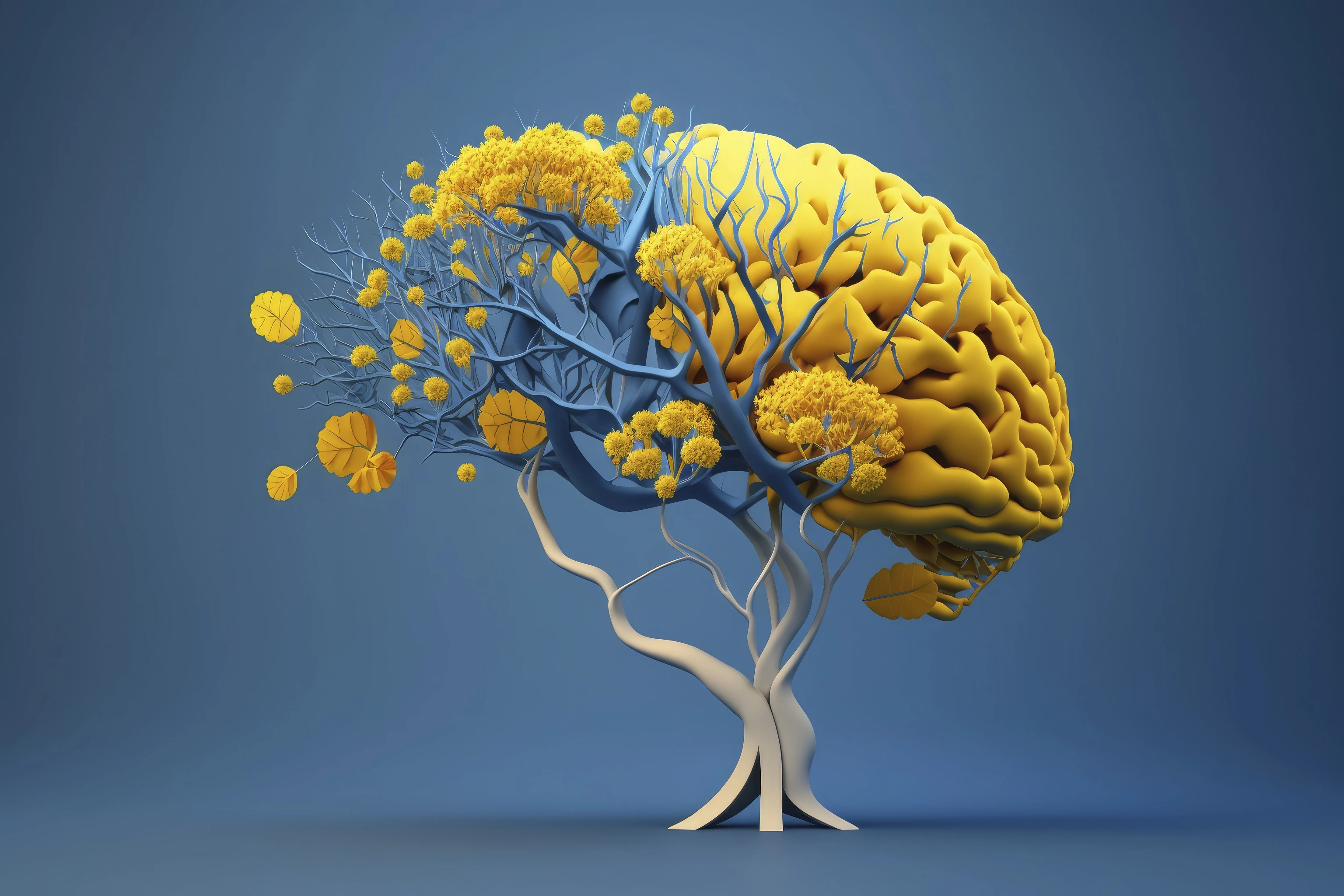
Championing Mental Health
Image: mental health
Mental health is a state of well-being in which the individual realizes his or her own abilities, can cope with normal stresses of life and is able to make a contribution to the community [1].
Individuals challenged with a mental health condition usually feel stuck in the same cycles of thought patterns and unable to escape the torture of their mind. The mental health conversation is currently front and center; however, acknowledging the importance of mental health is crucial in building sensitivity and reducing stigma. Wellness is more than working out and looking good.
Image: Wellness encompasses mind, body, and spirit
One can be physically fit and yet mentally broken. Wellness encompasses mind, body, and spirit.
Persons living with a mental health condition—or otherwise described as “mentally unfit”—unfortunately do not have the capacity to identify and manage their emotions and that of others. A person with a high psychological well-being has a high capacity to understand what emotions they are feeling and their causes, can control how these emotions drive their behavior, can correctly assess what emotions others are feeling and will interact with others depending on those assessments [2].
Image: Physically fit, mentally broken?
The flip side is much more prevalent, however. People often struggle with negative thought patterns which greatly affect how they assess their emotional states and those of others, let emotions influence their decisions and behaviors, and do not consider the emotions of other people they interact with. Mental health conditions can manifest differently depending on the disorder. However, the most common among these are depression, anxiety, and stress. These not only affect the mood, thoughts, behavior, and emotional state but also influence how well a person can function in their daily lives [3].
Children with an early life stress (traumatic events) may be predisposed to a mental health problem later in life [1][2].
Image: visibly troubled child
Depressed individuals may experience feelings of worthlessness, prolonged sadness, suicidal ideations, sleep disturbances, withdrawal from friends and activities, significant tiredness, a low self-esteem, and are unable to cope with daily life problems [3].
Image: Thoughts of self-harm. Seek help immediately.
In other cases, persons living with a mental condition have problems with alcohol and drug use, experience changes in sex drive, reduced ability to think or concentrate, and have excessive fears with panic attacks. These irrational fears and panic attacks are likely to be experienced by those battling an anxiety disorder.
Image: Panic attack
Severe panic attacks cause breathlessness, palpitations, nausea, and dizziness (common clinical symptoms per established diagnostic criteria).
Image: Changes in sex drive
In very severe cases such as schizophrenia, alcohol- or cocaine-induced psychosis, or a schizoaffective disorder, individuals suffer a detachment from reality; that is, experiencing delusions, paranoia, and hallucinations.
Image: Distortion from reality
With mental health illnesses such as sociopathy (commonly known as antisocial personality disorder), the most reliable predictor is a lack of empathy [4].
Image: Violent behaviour
Aside from a lack of empathy—which is a core component of psychopathy—sociopaths engage in persistent violent behaviors, have trouble forming and maintaining relationships with family, friends, and coworkers; are very irritable and hostile; and engage in serious crime (with disregard for rules and authority). These people have a knack for violating the rights of others with no remorse and rather appear indifferent [4].
Image: People aren't their disorders
In building sensitivity, it is important to know people aren’t their disorders. For example, instead of calling people dyslexics, autistics, schizophrenics, or blind, we could be kind enough to refer to them rather as people living with dyslexia, autism, schizophrenia, or the visually impaired. This makes them feel they are not different from us. It is, therefore, worth noting that making mockery of people’s mental condition prevents them from speaking up. As mental health activists, one of our main aims is to combat stigmatization.
Image: Support; Hope
There are millions of people worldwide living with mental health conditions and every conversation about mental health is an opportunity to fight the stigma associated with it. As a people, we need to collectively make a conscious effort toward mental health awareness and stigmatization eradication. Normalizing conversations about mental health in homes, schools, workplaces, and religious organizations can be a great way to start the fight against the stigma around mental health issues [5].
Image: Time to talk about mental health
Let’s strive to be more appreciative and supportive of those living with mental health conditions. Using words that bring hope and compassion can help people feel more comfortable opening up about their mental health. Being less judgmental and more accommodating can also make a significant difference.
Image: Time to talk to a clinical/counselling psychologist, medical doctor etc
References
- World Health Organization. (2001). The World Health Report 2001: Mental health: New understanding, new hope. World Health Organization. https://www.who.int/whr/2001/en/
- Cherry, K. (2023, July 20). What is mental health? Verywell Mind. https://www.verywellmind.com/what-is-mental-health-2330755
- Cherry, K. (2022, August 16). The importance of mental health. Verywell Mind. https://www.verywellmind.com/the-importance-of-mental-health-3145086
- Health.com Editors. (2022, September 16). Sociopathy vs. psychopathy: Similarities and differences. Health. https://www.health.com/sociopathy-vs-psychopathy-7487902
- Tennant, R. (2007). The concept of mental well-being: An overview of the literature. Journal of Public Mental Health, 6(1), 23–34. https://doi.org/10.1108/17465729200700005

We Love to Educate for Free
But please do not self-medicate as wrong doses of even correct medications can cause serious complications like kidney failure and even death. You can talk to a LICENSED health professional (including medical doctors, specialists, physician assistants, clinical psychologists, nutritionists/dieticians, medical herbalists, etc) by downloading the Deluxe Hospital app here:










